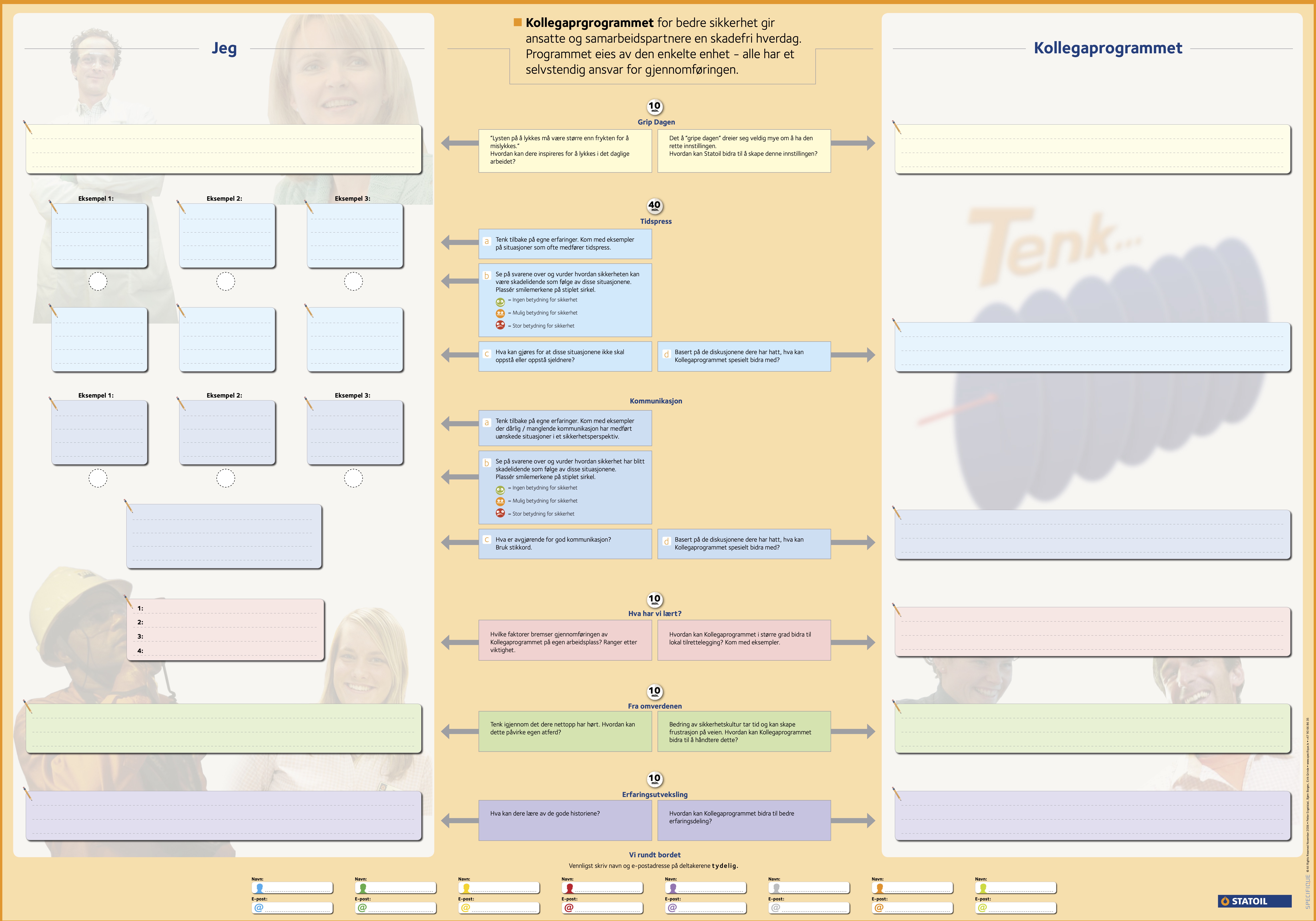When Statoil (now Equinor) set out to improve its safety culture, the goal was clear: to deepen understanding of how colleagues influence each other’s safety in daily work. The Safe Behaviour Programme was established as a strategic initiative to embed the vision of “Zero Harm” throughout the organisation – from offshore to onshore environments, from senior management to graduates.
The program was an ambitious learning effort aimed at strengthening safety culture by involving employees at all levens in the organisation. After years of improving systems and routines, and implementing robust HSE procedures, it became clear that safety performance hinged on human interaction. The project was based on the understanding that risk is managed and prevented through everyday conversations, dialogue, and behavioural choices – not just compliance.
Despite having strong HSE systems and targets in place, there was a need for a new approach. How could safety be made more personal and emotionally engaging? How could we foster peer support, psychological safety, and risk awareness in a more practical and inclusive way? Statoil needed a program that would both inform and inspire, and that could adapt to the various environments and cultures across the company.
Specifique was asked to design and develop the learning concept of the initiative. Our task was to ensure engagement and relevance for employees across all roles and experiences levels. We created a concept built around visual and interactive learning tools, centred on the use of dialogue mats – large visual canvases that served as graphic maps for team discussions, dilemmas, and safety reflections. These were supported by storytelling, films, and case-based exercises taken directly from Statoil’s day-to-day operations.
To complement the dialogue mats, we also developed a Zero Harm Toolkit, which included role-play exercises, mental training, films, and assessment tools for incidents. Dedicated modules for psychosocial stress were created, focusing on how workload can affect health and safety.
Our role included concept development, pedagogical design, content creation, as well as training and facilitation support during rollout. Through train-the-trainer sessions, we enabled internal facilitators in the organisation to deliver the training locally – whether in offices or offshore locations. Everything was developed in close collaboration with Statoil’s HSE and subject matter experts.
The results from each workshop were collected and reported to top management, providing valuable insights into participants’ reflections and concerns. Additionally, the outcomes from the training offered data on further improvements and needs that should be prioritised.
Feedback from the client showed that the Safe Behaviour Programme successfully raised awareness of how relationships and team dynamics influence safety. Employees reported stronger ownership of HSE practices, greater willingness to speak up, and a deeper understanding of how everyday choices impact their own and others’ safety. Leaders praised the program for its impact on trust, openness, and collaboration.




